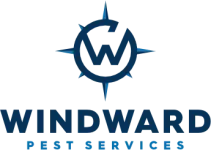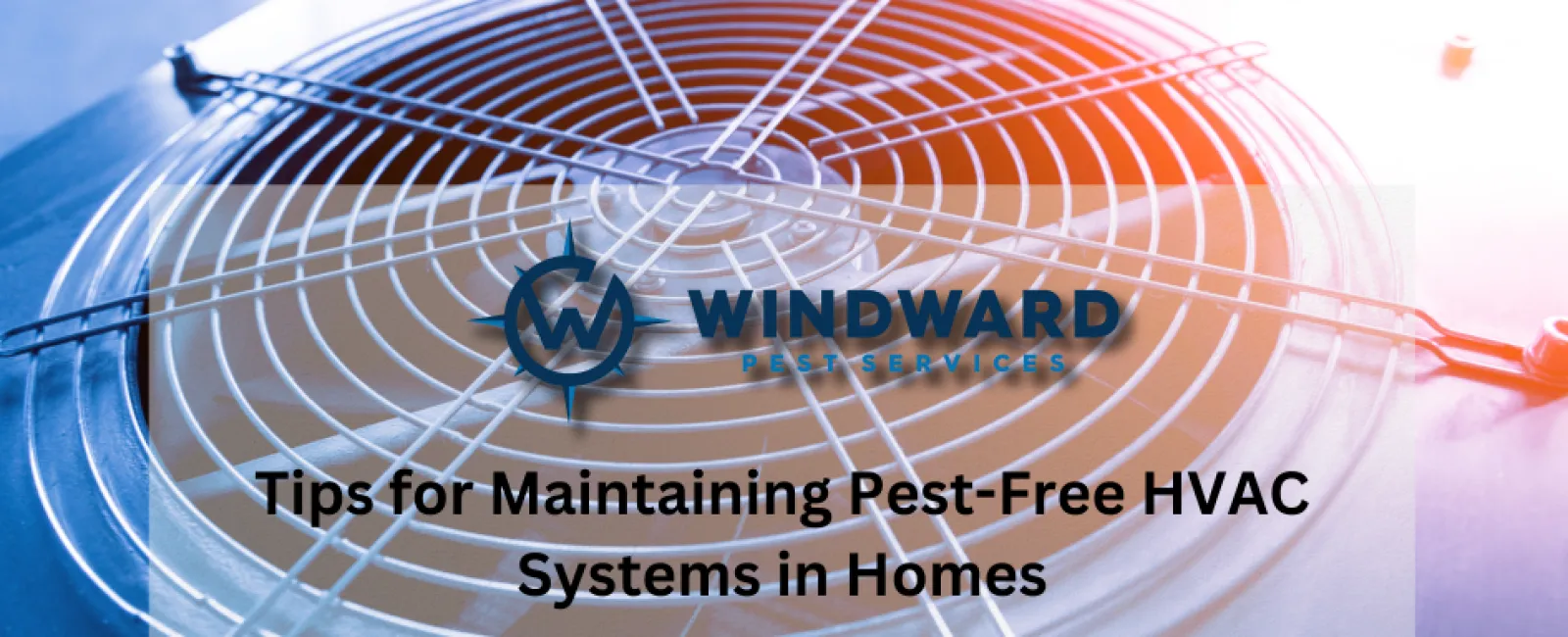Pests are unwelcome guests in any home, but their presence in your HVAC system can be particularly problematic. Beyond being a nuisance, pests infiltrating your heating, ventilation, and air conditioning system can cause significant damage, lead to decreased efficiency, and even introduce health risks. For homeowners in Georgia, where the climate often attracts pests year-round, taking proactive measures to maintain a pest-free HVAC system is essential.
Professional help, like the services offered by Windward Pest Services, can make a significant difference in preventing and addressing these issues. Our expertise in Atlanta pest control, Atlanta interior and exterior pest treatments, and Windward Pest Services pest inspections ensures that pests are kept out of all areas of your home, including your HVAC system.
This guide will explore the most common pest HVAC issues, ways to prevent pest infiltration, and how Atlanta residential and commercial pest services can protect your home.
How Pests Invade HVAC Systems
Pests often find HVAC systems to be an ideal place to settle because they offer warmth, protection, and even food sources. Common Georgia pests, such as rodents, insects, and birds, are adept at exploiting vulnerabilities in HVAC systems.
Common Entry Points for Pests
- Ductwork: Cracks, holes, or loose connections in ductwork provide easy access for small pests like insects and mice.
- Vents and Exhaust Pipes: Exterior vents are common entry points for birds, squirrels, and rodents.
- Outdoor Units: HVAC components located outside are susceptible to pests building nests or burrowing nearby.
- Gaps Around Wiring and Pipes: Openings where cables or pipes enter your home can serve as doorways for pests.
Once inside, pests can cause significant damage, contaminate air quality, and lead to costly repairs. Regular Windward Pest Services pest inspections are a proactive way to identify vulnerabilities before pests become a problem.
The Dangers of Pests in HVAC Systems
Allowing pests to inhabit your HVAC system can result in various issues that affect both your home and your health. Below are the primary dangers associated with pest HVAC issues:
1. Damage to HVAC Components
- Rodents can chew through wires and insulation, causing electrical problems or system failures.
- Insects like termites and ants can damage ductwork and structural components.
- Birds and squirrels may nest in outdoor units, blocking airflow and reducing efficiency.
2. Health Risks
- Contaminated Air: Pests often leave droppings, urine, or shed skin in ductwork, which can contaminate the air circulating in your home.
- Allergies and Asthma: Debris left by pests can trigger respiratory issues, particularly in sensitive individuals.
- Pathogen Transmission: Some pests, like rodents and cockroaches, carry diseases that can spread through your home.
3. Reduced Efficiency and Higher Energy Bills
Blocked airflow, damaged components, or poorly sealed ducts can force your HVAC system to work harder, leading to increased energy consumption and higher utility bills.
Tips for Maintaining a Pest-Free HVAC System
Keeping pests out of your HVAC system requires a combination of regular maintenance, preventive measures, and professional services like Atlanta interior and exterior pest treatments. Here are the most effective strategies:
1. Seal All Entry Points
Inspect your home and HVAC system for gaps, cracks, or other vulnerabilities. Focus on areas like:
- Duct connections
- Gaps around wiring and pipes
- Exterior vents and access panels
Use weatherproof caulk or steel mesh to seal small openings and prevent pests from entering.
2. Install Vent and Exhaust Covers
Outdoor vents and exhaust pipes are common entry points for pests. Install durable, pest-resistant covers to block access while allowing proper airflow.
Pro Tip: Ensure that covers are designed for HVAC systems to avoid restricting airflow or causing condensation buildup.
3. Keep Outdoor Units Clean and Clear
Regularly inspect your outdoor HVAC unit for signs of pest activity, such as nests, droppings, or gnawed wiring. To prevent pests from nesting or burrowing near the unit:
- Remove debris, leaves, and overgrown vegetation.
- Maintain a clear area of at least 2-3 feet around the unit.
- Install a barrier or grate to deter larger pests like rodents and squirrels.
4. Schedule Regular HVAC Maintenance
Routine HVAC maintenance can help identify and address pest issues early. During inspections, technicians can check for:
- Damaged ductwork
- Signs of pest infestation
- Blockages caused by nests or debris
Pairing HVAC maintenance with Windward Pest Services pest inspections ensures comprehensive protection for your home.
5. Maintain Proper Drainage
Moisture attracts pests, making it crucial to ensure proper drainage around your HVAC system. To prevent water accumulation:
- Check and clean the condensate drain line regularly.
- Ensure gutters and downspouts direct water away from the home.
- Fix leaks promptly to prevent damp conditions.
6. Use Pest-Repellent Treatments
Professional Atlanta interior and exterior pest treatments can create a barrier around your home and HVAC system, deterring pests from entering. Treatments may include:
- Spraying insecticides around vulnerable areas
- Applying rodent repellents near outdoor units
- Using bait traps strategically to minimize infestations
How Professional Pest Control Services Help
Partnering with Atlanta residential and commercial pest services, like those offered by Windward Pest Services, provides an added layer of protection for your HVAC system. Here's how their expertise can benefit you:
Comprehensive Inspections
Professional pest control teams perform thorough inspections to identify signs of infestation, assess vulnerabilities, and recommend effective solutions.
Tailored Pest Control Plans
Windward Pest Services customizes treatments to address the specific types of Georgia pests that are common in your area, ensuring long-lasting results.
Integrated Pest Management (IPM)
IPM focuses on preventive measures, such as sealing entry points, modifying habitats, and monitoring for pest activity, to minimize the need for chemical treatments.
Coordination with HVAC Professionals
Professional pest control teams often work closely with HVAC technicians to address issues that overlap, such as repairing damaged ductwork or sealing access points.
Signs of Pest Infestation in HVAC Systems
It's important to recognize the early signs of a pest problem in your HVAC system so you can take action before the situation worsens.
Warning Signs to Watch For:
- Unusual Noises: Scratching, scurrying, or chirping sounds coming from ducts or vents.
- Foul Odors: Musty or pungent smells may indicate droppings, urine, or dead pests.
- Visible Droppings or Debris: Look for droppings, nesting materials, or shed skin near vents and outdoor units.
- Poor Airflow: Blockages caused by nests or debris can reduce airflow from your vents.
- Increased Allergies or Respiratory Issues: Contaminated air from pest activity can exacerbate health problems.
If you notice any of these signs, schedule a professional inspection immediately. Windward Pest Services' expertise in Atlanta pest control ensures fast and effective solutions to address infestations.
Maintaining a pest-free HVAC system is essential for the health, safety, and comfort of your home. From preventing Georgia pests from entering through gaps or vents to addressing infestations quickly and effectively, proactive steps can save you time, money, and stress.

